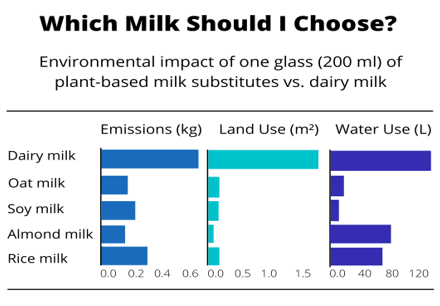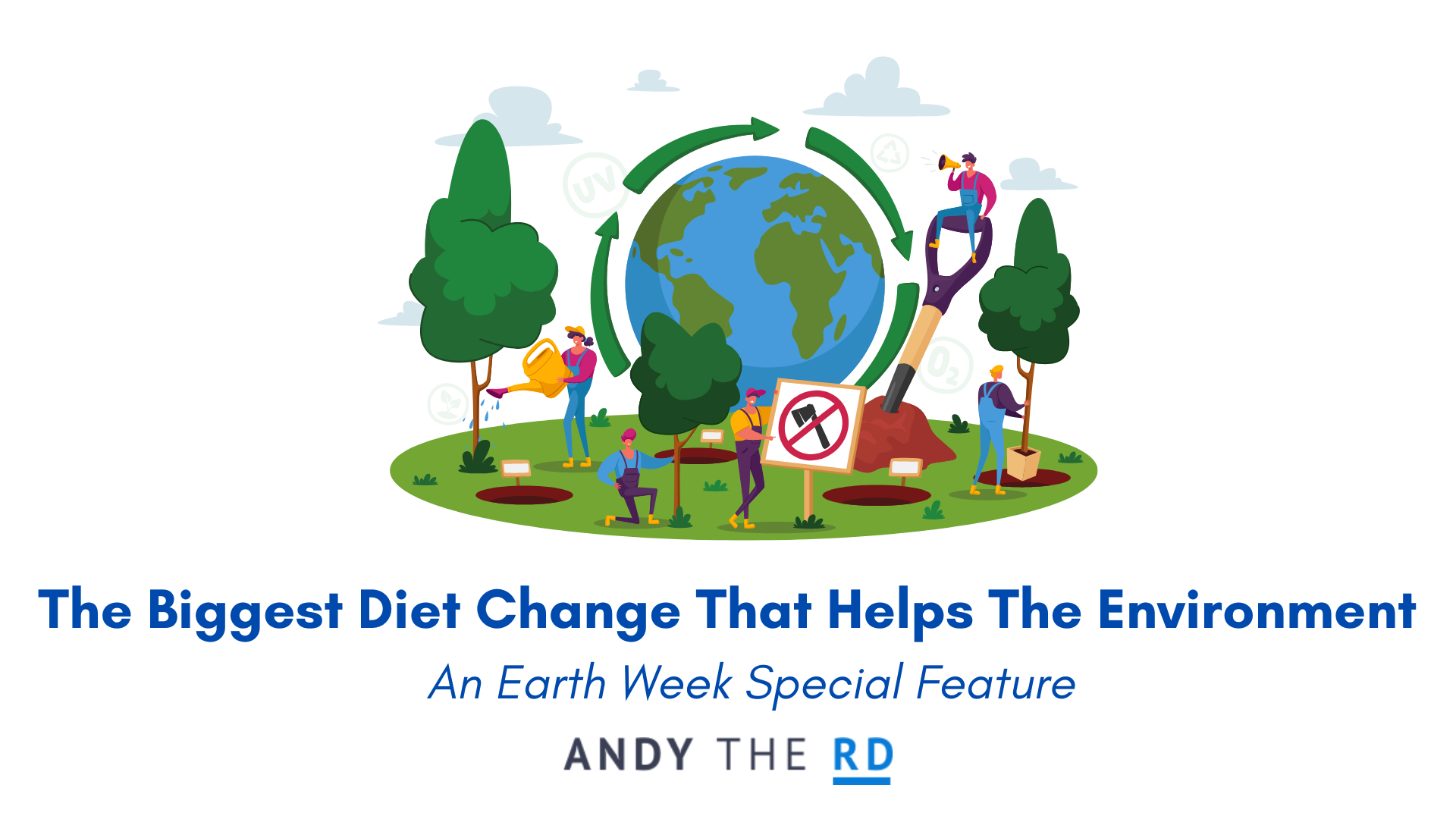Table of Contents
The totality of your dietary pattern impacts not only your health, but the health of the environment as well.
Today’s post is not a value-based crusade, but rather an objective look at how one can shift their intake to positively influence emissions and natural resource use.
It is Earth Week after all.
Let’s get to the good stuff.
Message #1 – Vegan Diet Is Best For Env’t
“Results from our review suggest that the vegan diet is the optimal diet for the environment because, out of all the compared diets, its production results in the lowest level of GHG emissions.“
I’m personally not vegan, but it is abundantly clear that an exclusively plant-based diet is overwhelmingly likely to be the most environmentally friendly style of eating.
The issue, of course, is that this pattern of eating will inevitably only appeal to a certain percentage of the population.
But you don’t have to go vegan to help the environment.
“The reviewed studies indicate the possibility of achieving the same environmental impact as that of the vegan diet, without excluding the meat and dairy food groups, but rather, by reducing them substantially”
The first thing we have to acknowledge is that someone who only eats 200 grams of animal products a week and then shifts to zero would be considered a vegan, but an individual who let’s say went from eating 1kg to 500 grams a week would not, but would technically have made a bigger net environmental change.
The example above is flawed, but does demonstrate that you can make a difference without giving up foods you enjoy.
Message #2 – Swapping Out Beef Has The Biggest Impact
As it relates to greenhouse gas emissions, beef has the biggest environmental footprint by a significant margin – nearly 2.5x more than lamb which is the second biggest contributor and 3x that of dairy in third.
Speaking of dairy, see the chart below for a comparison of the environmental impact of various milk products if this is an area of curiosity for you.

The biggest environmental hit on beef production comes from the significant changes in land use required to sustain it combined with the significant emissions required to process the meat into grocery ready products.
Beef of course is a significant dietary source of protein and iron, so it would only be reasonable to offer up alternatives with similar characteristics.
Message #3 – You Can Swap It With Chicken, Pork or BEANS!
For you environmentally conscious omnivores who want to reduce their environmental food print, you’ve got two levels of modification to consider.
Level 1 – Swapping Beef For Chicken or Pork
“The highest impact foods were all beef items. After substitution of these items with poultry or pork, the mean carbon and water scarcity footprints among those with substitutions significantly decreased.”
The American Journal of Clinical Nutrition
Level 2 – Swapping Beef For Fish
“[M]oving towards diets with lower environmental impact relied more on redistributing the sources of animal-based products rather than on reducing their total contribution (less meat in favor of dairy, egg and fish products“
Global Food Security Volume 23
While I don’t see dairy and eggs as practical meal-time swaps for beef, fish certainly is.
Level 3 – Swapping Beef For Legumes
Ding, Ding, Ding – WE HAVE A WINNER.
I’ve previously written an article identifying legumes as the most underappreciated family of foods from the health perspective.
It appears that they are also absolute gems when it comes to the environment too.
You can read this agricultural science piece to learn more about why that is if you feel so inclined.
Closing Quote
This one says it all.
Improving your personal health and the health of the environment are not mutually exclusive endeavours, diversifying your protein intake is the path forward for both.
“Foods associated with improved health (whole grain cereals, fruits, vegetables, legumes, nuts, olive oil, and fish), all except fish have among the lowest environmental impacts, and fish has markedly lower impacts than red meats.”
This does not mean beef lovers have to stop eating beef, but it could mean that environmentally-inclined beef lovers might consider eating less while opting for alternative protein sources instead.
Need my help to accomplish that task on your terms?
Reach out about working with me on your nutrition and health goals.
Andy De Santis RD MPH





More Stories
Avocado Cacao Mousse – JSHealth
Janelle Brown on Garrison’s Mental Health Before His Death
How To Finally Beat Insomnia